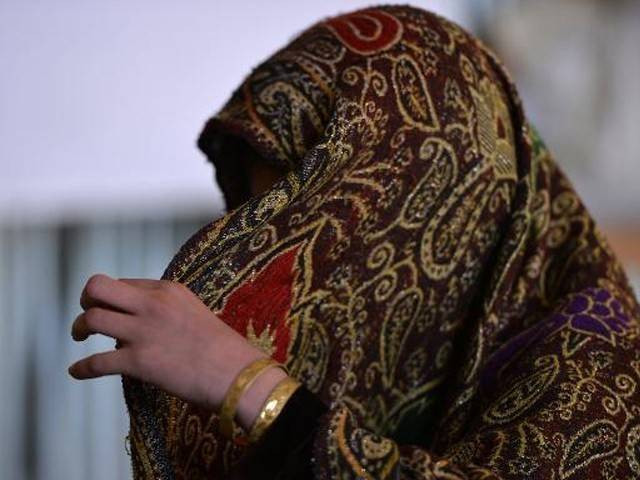Honour killing: Hurdles in investigation make justice a long shot
Petition filed against court order to exhume two victims for autopsy

PHOTO: AFP
More often than not, little is done by relatives of the victims to aid the investigation process. A petition filed by the mother of two women murdered and secretly buried in Mansehra is likely to create hurdles in the investigation.
Still the second sex: The blank space where violence against women thrives
According to the petition filed on Monday with the court of additional district judge Faryal Zia, the mother vehemently opposed the decision to exhume the bodies of her daughters for an autopsy. The petitioner said it was against tribal customs to expose a woman’s remains to strangers and requested the court to nullify the order to exhume their bodies. The court adjourned the hearing till March 30.
The secret burial
On March 18, Sher Zada, a resident of Mansehra who hails from Pattan, Kohistan, gunned down his 22-year-old sister-in-law Khalida Bibi and her 17-year-old sister Ruqayya Bibi. He buried them with the help of his family.
When the police arrested him, the family initially said both women died of natural causes. However, upon further enquiry, Sher Zada changed his statement, saying he was cleaning a pistol in his house on Friday. The pistol accidentally went off, killing both of them on the spot.
Mosaic of Pakistan: ‘Quaid wanted pluralistic Pakistan’
Mansehra City police station SHO Javed Khan, who had ordered a raid on Sher Zada’s house, suspected this was a case of honour killing and became a complainant in the case. City police registered a case of double murder against the accused and his two accomplices.
On an application filed by the SHO, a district and session court in Mansehra had ordered the relevant authorities to exhume the bodies of two women for autopsy on March 21.
Something to hide
Human rights organisations have billed the incident a violation of law. They have demanded a thorough investigation, as the custom of killing women over ‘honour’ remains fairly common in the region.
Shafqat Khan, a human rights activist, told The Express Tribune the Supreme Court had issued directives to all provincial governments on March 20, 1996, saying all autopsies on women should be performed by medical examiners who are women.
Honour killing: Two gunned down
According to Shafqat, when women are available to conduct an autopsy on Khalida Bibi and Ruqayya Bibi, the mother’s opposition to the process suggests there is something the family does not want to disclose.
He said previous cases of honour killing that surfaced from Kohistan suggest the law of the land is flouted by tribal culture to serve the agenda of a male-dominated society.
Kohistan video scandal
A large number of cases of honour killing have surfaced from Kohistan in the past and little has been done to take the culprits to task.
Husband chops off wife’s nose, hair in Azad Kashmir
In 2012, four women of the Azadkhel tribe were filmed singing and clapping while two boys belonging to the Salekhel tribe were dancing at a wedding ceremony. When the video was leaked to the tribe, a jirga condemned the four women and another minor girl for arranging the mixed gathering. It also condemned the two boys in the video to death.
Published in The Express Tribune, March 24th, 2016.













COMMENTS
Comments are moderated and generally will be posted if they are on-topic and not abusive.
For more information, please see our Comments FAQ